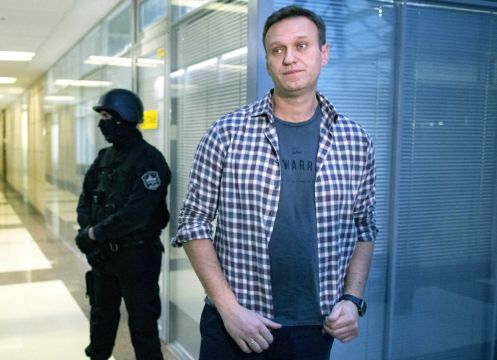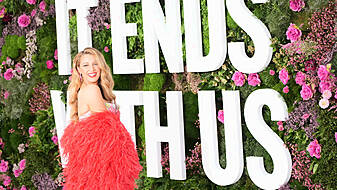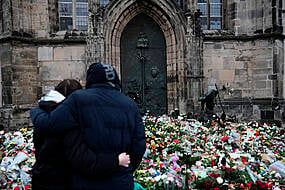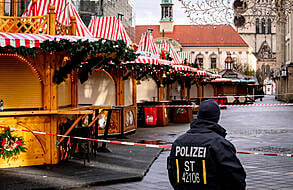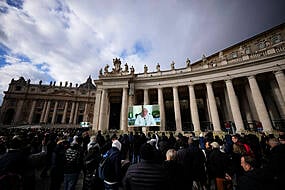Russia has decided to expand the number of British nationals barred from entering the country in response to the “unacceptable and unfounded” UK sanctions over the poisoning of top Kremlin critic Alexei Navalny.
In October, the European Union and the UK imposed sanctions on six Russian officials and a state research institute over what German authorities said was a poisoning in Russia with a nerve agent.
The penalties consisted of asset freezes and entry bans.
In a statement, Russia’s Foreign Ministry said the decision to expand the number of British nationals was made in response to “unconstructive and unfriendly actions of the British authorities”.

The ministry did not reveal the names or exact number of those barred, saying only that it would be “those who are complicit in ramping up anti-Russian sanctions activities” in the UK.
British ambassador to Russia Deborah Bronnert was summoned to the ministry on Wednesday and informed about the measures, the statement said.
Last week, the ministry announced a similar response to the EU sanctions.
Mr Navalny, a longtime adversary of President Vladimir Putin, fell sick during the August 20 flight in Russia and was flown to Berlin while still in a coma for treatment two days later.
Labs in Germany, France and Sweden, and tests by the Organisation for the Prohibition of Chemical Weapons, established that he was exposed to a Soviet-era Novichok nerve agent.
Mr Navalny, who is currently convalescing in Germany, has accused Mr Putin of ordering the poisoning.
Russian authorities have repeatedly denied any involvement.
The politician has vowed to return to Russia, but in recent weeks the authorities have ramped up pressure on him in what some say is an effort to prevent that from happening.
On Monday, Russia’s prison agency accused Mr Navalny of violating the conditions of the suspended sentence he received for a 2014 conviction and gave him one day to report to its office or face a real jail term for missing the deadline.
The next day Russia’s Investigative Committee said it has opened a new criminal case against Mr Navalny on charges of large-scale fraud related to his alleged mishandling of some five million dollars in private donations to his Anti-Corruption Foundation and other organisations.
Mr Navalny ridiculed the new accusations as a sign of Mr Putin’s despair, tweeting: “It looks like Putin is in hysterics.”
Kremlin spokesman Dmitry Peskov told reporterson Wednesday that Mr Putin was “not in hysterics” and said the situation around Mr Navalny “doesn’t stir up any feelings” in the president.
Mr Peskov refused to comment on whether cases against Mr Navalny were politically motivated.
